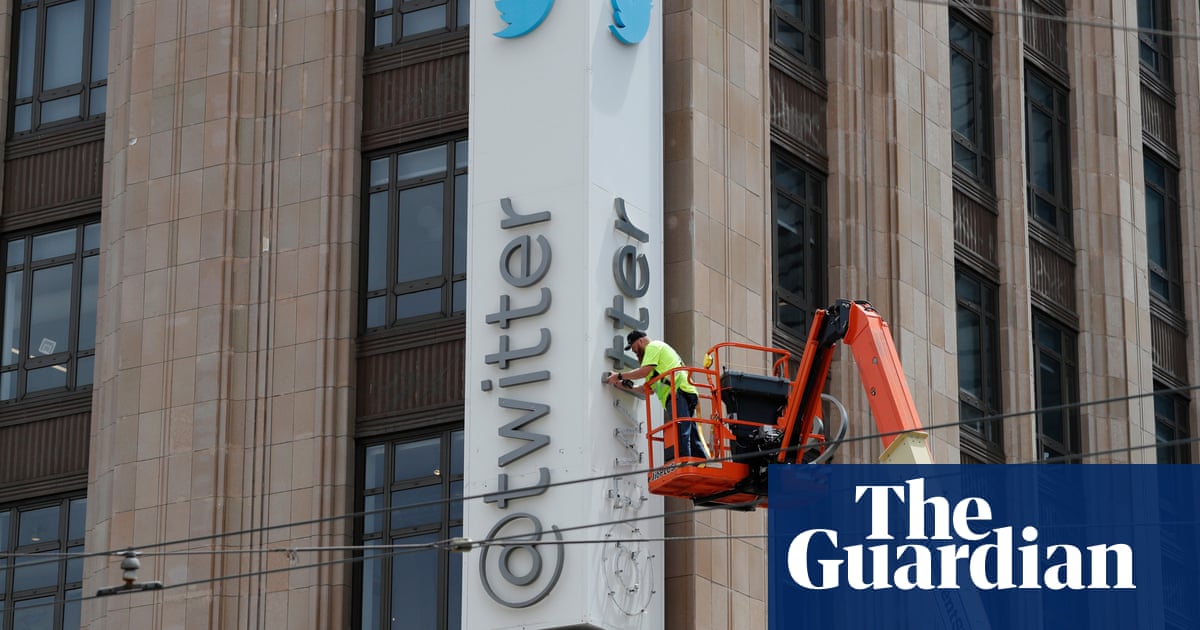The demise of Twitter: how a ‘utopian vision’ for social media became a ‘toxic mess’

🌈 Abstract
The article discusses the decline of Twitter (now renamed X) and the changes it has undergone since Elon Musk's acquisition of the platform in 2022. It explores the platform's early promise as a "utopian vision" for public discourse, its role in breaking news and political debates, and the subsequent dismantling of its key moderation features under Musk's leadership.
🙋 Q&A
[01] The Beginning: 'A Utopian Vision'
1. What were Twitter's early goals and vision?
- Twitter had a "utopian vision" in its early years, seeing itself as a disruptor and a space for genuine public discourse.
- It was a fast-moving, innovative platform where people could get breaking news and connect with those they admired.
- While it had pockets of toxicity even early on, it was not entirely like that.
- Twitter had social cachet, with people being obsessed with having a blue verification tick.
2. What was Twitter's impact on news and politics?
- While Twitter never had the broad mainstream appeal of platforms like Facebook or Instagram, it had an outsized impact on the world of news and politics.
- Its specific and limited audience included journalists, politicians, activists, and experts who were influential in their respective communities.
- Twitter became central to the news cycle, with journalists unable to afford to do without it.
- The platform's functionality, such as @mentions and hashtags, made it well-suited for breaking news, as seen during the 2011 tsunami in Japan.
- Research found that a significant percentage of US Twitter users got news from the site, felt it increased their understanding of current events, and made them more politically engaged.
3. What were the issues with Twitter's breaking news functionality?
- While the immediacy of the platform gave voices to dissidents and citizen journalists, it also allowed politicians to circumvent the traditional mediation of journalists.
- There were always issues around misinformation and trolling, but Twitter implemented measures like verification, moderation policies, and a trust and safety team to combat the worst effects.
[02] The Present: Musk's Wild West
1. What changes did Elon Musk make to Twitter after acquiring it?
- Musk swiftly dismantled the three pillars that made Twitter reasonably reliable during breaking news events: the trust and safety teams, the verification process, and the approach to moderation.
- Many previously banned accounts, including Donald Trump's, were reinstated.
- The verification process changed, with blue ticks now available for purchase rather than being granted to public figures or recognized news sources.
- Musk's approach to moderation reflects a broader US perspective on free speech as an absolute good, which clashes with the need to balance free speech and protection from harmful speech in other parts of the world.
- Ironically, Musk has suspended accounts of people who have criticized him, including high-profile journalists, while also banning an account tracking the whereabouts of his personal jet.
2. How has Musk's changes impacted the platform?
- The platform is turning into a "toxic mess," according to the article, as the pillars that made Twitter conducive to a community finding facts have been taken away.
- Musk wants X to be the original Twitter, which was crucial to the news cycle, but also to remove the processes that made it a reliable platform.
[03] The Future: An Uncontrollable Place
1. What research indicates about the changes in user behavior on Twitter/X?
- Research from Pew found that in the first few months after Musk's acquisition, 60% of US Twitter users took a break of a few weeks or more from the platform, and 25% said they did not see themselves using the site at all within a year.
- Even the most prolific tweeters were using the platform less, with a 25% dip in the number of tweets they posted per month.
2. How has Musk's changes impacted academic research on the platform?
- The skyrocketing costs of accessing Twitter's APIs have made it prohibitively expensive for academic researchers and private sector organizations to continue their work on the platform.
- This is a concern, as academic research on Twitter used to enable the platform to identify and clean up pockets of hate speech and misinformation, which will now go even more unchecked.
- The platform is transforming into something more similar to far-right-leaning platforms like Gab or Parler, where people "furiously agree with each other and furiously hate on everyone else."
3. How does the former Twitter employee view the current state of the platform?
- The former Twitter employee has since deactivated their account, as they now see the platform as a "really dangerous space" that is "uncontrollable."
- They miss the platform's role as an "amazing newswire for journalists and citizen journalists," and wonder where to go for breaking news, as there is a "hole that has been left behind."